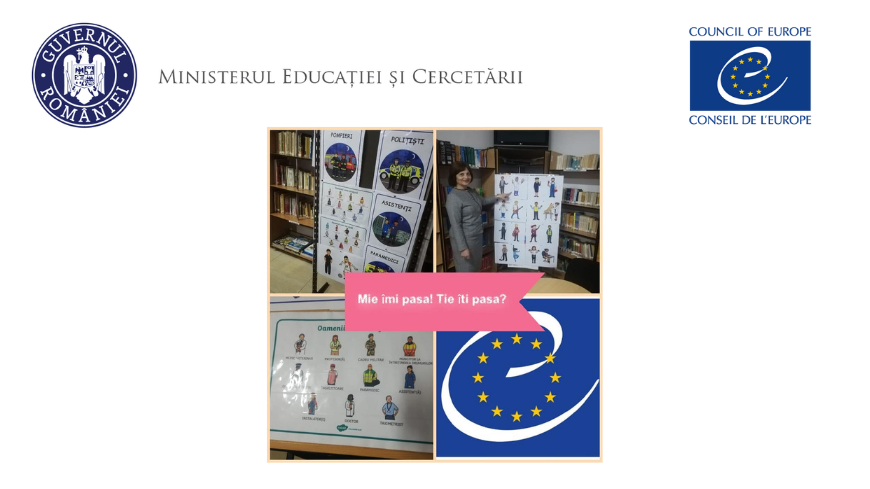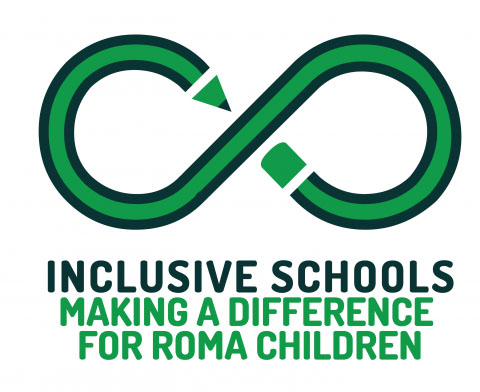via Council of Europe - Roma and Travellers website
On 9 October 2020 a Memorandum of Understanding was signed between the Council of Europe and the Ministry of Education and Research of Romania (MoER) setting quality inclusive education and training as a common priority. Following this positive development, a microgrant scheme was launched on 19 October, targeting schools in the most disadvantaged areas of the country as a first initiative within the cooperation between the two institutions on the topic of inclusive education for all children, including Roma children.
The action is financed by the Roma and Travellers Team of the Council of Europe, under the Strategic Action Plan for Roma Inclusion 2020 – 2025, priority 3 “Supporting access to inclusive quality education and training”. Schools were selected by the MoER in cooperation with partner organisation in Romania (UNICEF Romania and Agentia Impreuna Foundation) on the basis of an open call. Out of a total of 40 finally selected and notified schools, by 31 December 2020, twenty schools benefitted from the financial support of the Council of Europe consisting of microgrants of up to € 2500. The financial support ranged from € 1671,42 to € 2499,62 with a total investment of € 45910,2 for the 20-school cohort in the first round of implementation.
Overall, 76 activities - consisting mainly of remedial actions, psycho-emotional support and online workshops - were conducted by the 20 schools involved so far. Many schools used the opportunity of the microgrants to acquire much needed devices (under the property of the school, lent to children with limited or no access to online classes) or equipment and consumables for the schools. All such purchases were made within the activities approved in their applications. The activities impacted directly 517 children, out of which 72% were Roma (an estimated 415 pupils). At least 158 Roma parents were also involved in joint or specific activities (workshops, extra-curricular activities, psycho-emotional support). At least 66 teachers were directly involved in the activities conducted under the first wave of the microgrant scheme.
The microgrant scheme also comes as a response to the request of the Ministry of Education and Research in Romania for support, following a similar microgrant scheme offered to schools involved in the European Union and Council of Europe Joint Project INSCHOOL “Inclusive Schools: Making a Difference for Roma children” between April and June 2020.
The second round of microgrants will involve additional 20 schools among the final list established in November 2020. Implementation is expected between 1 March – 15 June 2021, with activities adapted to local health and safety scenarios and possibility of schools to shift from face-to-face / hybrid and online activities.
Quotes from school reports:
“I have seen that some of the Roma children were so happy that they finally know how to contact their colleagues and also the most important that they are able to take part now to classes as well as the rest of their colleagues. Their parents have helped them a lot explaining, encouraging and supporting them. We had also a great sense of satisfaction with one of the Roma girls whom we got to know better now than in face-to-face classes. Maybe it was because she realized that we are trying to help her but she has become an example for us.”
“The 6 Roma students (2 of them are in the category of students in placement) actively participated, trained in discussions, they talked about their situation at home, about aspirations, desires. One of the girls, a 6th grade student, who rarely attended school classes, citing various reasons, one of them being that she takes care of younger siblings and that she does various household chores in the house, she actively participated, she discovered that she is appreciated by teachers, colleagues, that she can be considered a good teammate"
“The members of the project notice how happy are the children when you visit them in the community. They also admire not only the children’s way of writing, colouring and solving of the handouts, but also the conditions of their daily life. This way each parent could discover the potential of their own child and their situation at school and make a plan together with the teachers to help their children get educated. The parents of the children from the target-group enjoyed the teachers’ visits and they realize that they have to communicate each and every time with the teachers for the good of their children."


